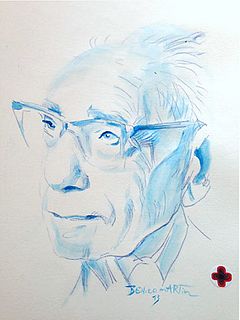 W
WDavid Colquhoun is a British pharmacologist at University College London (UCL). He has contributed to the general theory of receptor and synaptic mechanisms, and in particular the theory and practice of single ion channel function. He held the A.J. Clark chair of Pharmacology at UCL from 1985 to 2004, and was the Hon. Director of the Wellcome Laboratory for Molecular Pharmacology. He was elected a Fellow of the Royal Society (FRS) in 1985 and an honorary fellow of UCL in 2004. Colquhoun runs the website DC's Improbable Science, which is critical of pseudoscience, particularly alternative medicine, and managerialism.
 W
WStuart Graham Cull-Candy is a British neuroscientist. He holds the Gaddum Chair of Pharmacology and a personal Chair in Neuroscience at University College London. He is also a member of the Faculty of 1000 and holds a Royal Society - Wolfson Research position.
 W
WSir John Carew Eccles was an Australian neurophysiologist and philosopher who won the 1963 Nobel Prize in Physiology or Medicine for his work on the synapse. He shared the prize with Andrew Huxley and Alan Lloyd Hodgkin.
 W
WEvgeny A. Pokushalov is a Russian electrophysiologist.
 W
WSir Alan Lloyd Hodgkin was an English physiologist and biophysicist, who shared the 1963 Nobel Prize in Physiology or Medicine with Andrew Huxley and John Eccles.
 W
WSir Andrew Fielding Huxley was an English physiologist and biophysicist. He was born into the prominent Huxley family. After graduating from Westminster School in Central London, from where he won a scholarship to Trinity College, Cambridge, he joined Alan Lloyd Hodgkin to study nerve impulses. Their eventual discovery of the basis for propagation of nerve impulses earned them the Nobel Prize in Physiology or Medicine in 1963. They made their discovery from the giant axon of the Atlantic squid. Soon after the outbreak of the Second World War, Huxley was recruited by the British Anti-Aircraft Command and later transferred to the Admiralty. After the war he resumed research at The University of Cambridge, where he developed interference microscopy that would be suitable for studying muscle fibres.
 W
WSir Bernard Katz, FRS was a German-born British physician and biophysicist, noted for his work on nerve physiology. He shared the Nobel Prize in physiology or medicine in 1970 with Julius Axelrod and Ulf von Euler. He was made a Knight Bachelor in 1969.
 W
WErwin Neher is a German biophysicist, specializing in the field of cell physiology. For significant contribution in the field, in 1991 he was awarded, along with Bert Sakmann, the Nobel Prize in Physiology or Medicine for "their discoveries concerning the function of single ion channels in cells".
 W
WBert Sakmann is a German cell physiologist. He shared the Nobel Prize in Physiology or Medicine with Erwin Neher in 1991 for their work on "the function of single ion channels in cells," and the invention of the patch clamp. Bert Sakmann was Professor at Heidelberg University and is an Emeritus Scientific Member of the Max Planck Institute for Medical Research in Heidelberg, Germany. Since 2008 he leads an emeritus research group at the Max Planck Institute of Neurobiology.